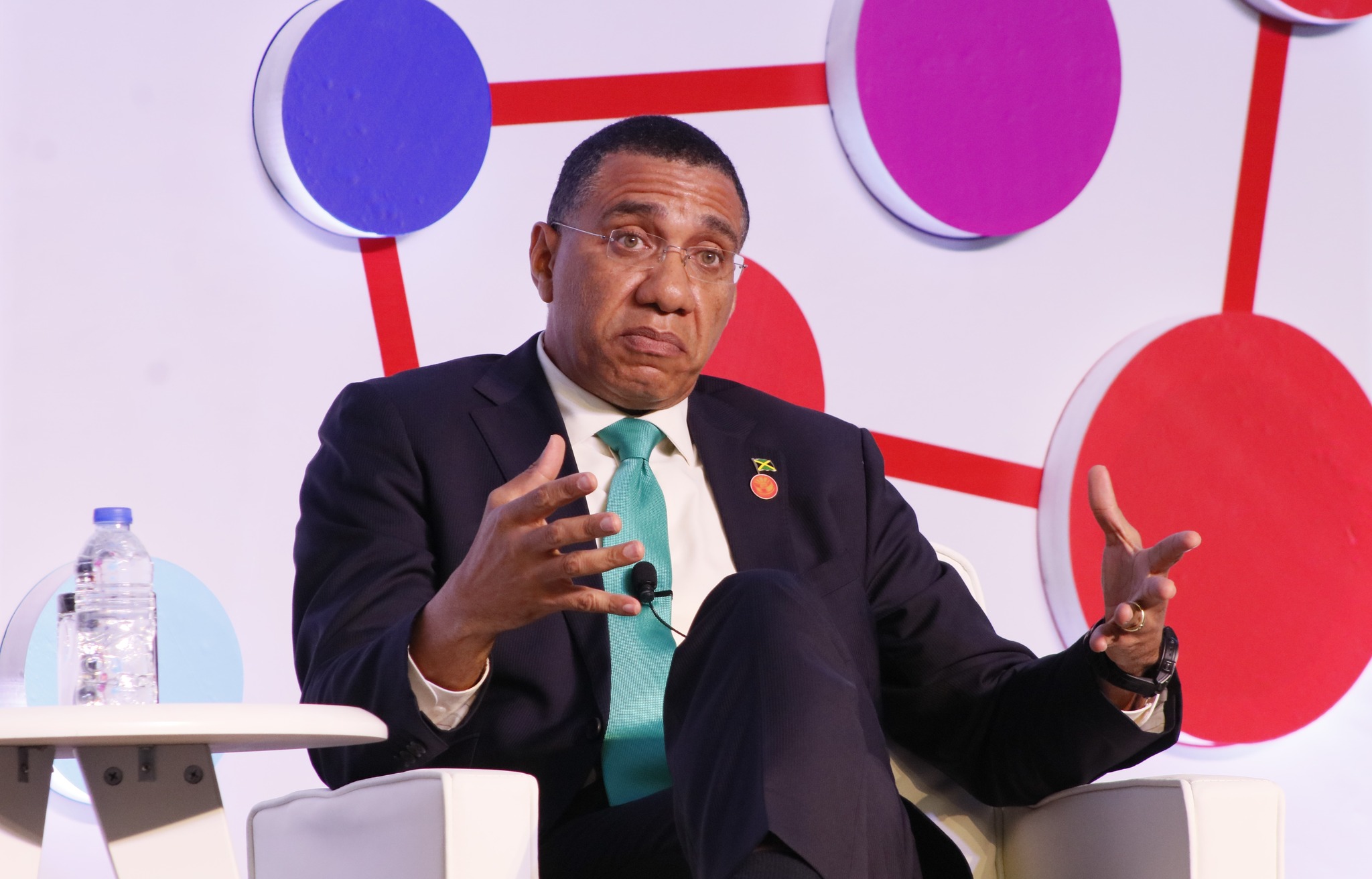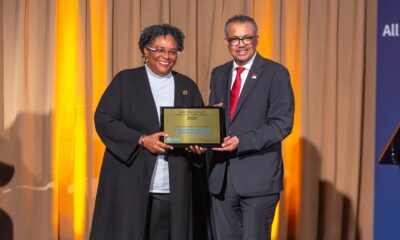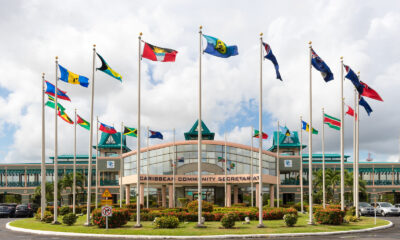By Rashaed Esson
Staff Writer
#TrinidadandTobago, April 21, 2023 – Andrew Holness, Prime Minister of Jamaica at the CARICOM Regional Symposium on crime said there is a “huge deficit presently in the architecture of our state, to treat with Crime and Violence, from a legislative point of view, from a law enforcement point of view and from a social intervention point of view.
During the panel discussion, he explained that the state must address how it will go about reformation to deal with the evolving problem of Crime and Violence to which he identified two “new accelerants,” the easy access to lethal weapons for citizens, particularly guns, and the evolution of social media; “the dissemination of information, that could influence or give insight to the use of violence.”
Holness stated that the epidemic of Crime and Violence has been exacerbated by the uncontrolled influx of illegal firearms, “small arms and light weapons.”
He hinted at the irony of how easy it is for criminals to obtain illegal guns despite the fact that they are not manufactured in our region.
For reference, statistics from Jamaica can be used. He revealed that in the last 10 decades, a total of 8,036 guns were seized and 12,641 Jamaican citizens were killed by illegal firearms.
Additionally, in his speech, the Jamaican Prime Minister highlighted that the last few decades have seen a rise in crime and the use of fatal weapons, further stating that the nature of violence has changed for which the region’s Law Enforcement, Justice System, Public Health Systems and Education and Social Intervention Systems are not prepared to handle, hinting to the lack of agility in the system to handle Crime.
In comparing the effects of Crime and Violence to diseases, Holness revealed that in Jamaica it is among the 10 causes for seeking medical attention and a leading cause of deaths.
causes for seeking medical attention and a leading cause of deaths.
During his address, leader of the largest English speaking country in the Caribbean repeatedly characterised Crime and Violence as threats to the Caribbean state, undermining its ability to deliver services as well as weakening citizens’ confidence in it for protection.
Not only that, he points to the fact that it threatens the region’s brand for tourism, “a safe place to visit.”
It is for these reasons and more importantly the continuous loss of lives of Caribbean people why Holness, who became Jamaica’s youngest elected prime minister in 2016, urged the region to make the necessary changes.
The Caribbean jurisprudence as he stated, was not designed to deal with Crime of this nature and magnitude and so legislative reform is required. He says the region is trapped in an “inherited archaic” system from which a break is needed in order to create our own laws to deal with our own problems.
And, he strongly expressed that there needs to be political consensus in the region on how to address Crime and Violence, separate from the competitive political space, to aid in long-term solutions.
He further maintained that the war on guns must be as strong as the war on drugs if the region is going to see progress.
In addition to that, he says the region should invest more time into preventing illegal substances from getting to other countries and not enough time on preventing guns from coming into “our countries.”
Prime Minister Holness also called on the region to put their “money where our threats lie,” and that the Governments should consider increasing investments on National Security.
Important points were also made regarding the reform of the education system and social services and to put more focus on Caribbean young males, according to Public Health evidence, as males are more prone to be involved in violence and make up most of the Criminal population according to statistics (90 percent of young males are perpetrators and victims).
To this, Holness expressed that something is wrong with the socialization of Caribbean males to which Public policy must fashion an urgent response.
Ahead of the Jamaican Prime Minister’s presentation at the Regional Symposium: Violence as a Public Health Issue – The Crime Challenge held at the Hyatt Regency, Trinidad was an opening session statement by his Commission of Police, Antony Anderson of Jamaica.


 Caribbean News1 week ago
Caribbean News1 week ago
 Caribbean News1 week ago
Caribbean News1 week ago
 Caribbean News1 week ago
Caribbean News1 week ago
 Caribbean News1 week ago
Caribbean News1 week ago
 Bahamas News1 week ago
Bahamas News1 week ago
 News1 week ago
News1 week ago
 Bahamas News1 week ago
Bahamas News1 week ago
 News1 week ago
News1 week ago























